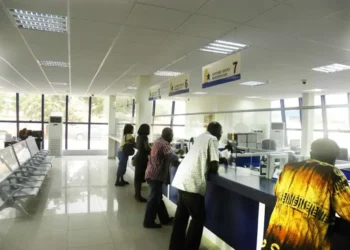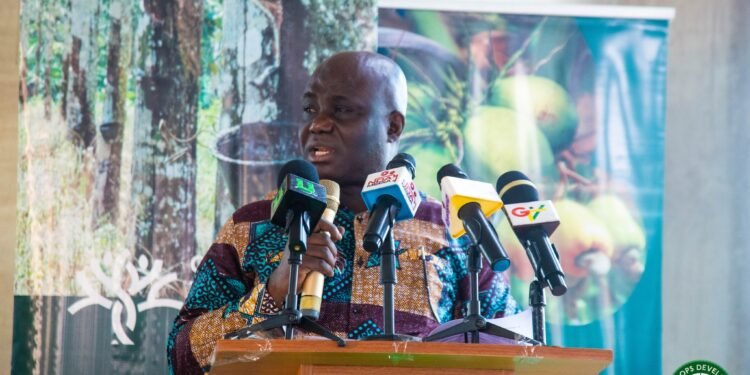The Government of Ghana’s efforts to raise funds through treasury bills have once again suffered a setback, as the latest auction results from the Bank of Ghana revealed an undersubscription for the second consecutive week.
The auction, which sought to raise GH¢4.24 billion, attracted bids totaling a little over GH¢3 billion, leaving a shortfall of nearly 30%. This continued underperformance highlights rising fiscal pressures and investor caution on the domestic debt market.
According to the results, the 91-day bill remained the most attractive security, with bids worth GH¢2.05 billion. Out of this, GH¢2.02 billion was accepted, reflecting investors’ preference for short-term commitments amid market uncertainties.
On the other hand, the medium- and long-term bills struggled. For the 182-day bill, investors tendered GH¢678.18 million, with only GH¢537.69 million accepted. The 364-day bill performed even more poorly, recording GH¢272.58 million in tenders, out of which only GH¢167.66 million was taken up. In total, GH¢3.0 billion worth of bids were submitted, but only GH¢2.73 billion was accepted — far short of the GH¢4.24 billion target.
Yields Show Mixed Trends
While investor participation remained sluggish, treasury bill yields revealed mixed movements on the yield curve. The interest rate on the benchmark 91-day bill dipped by 7.0 basis points, settling at 10.13%. This signals continued demand for short-term securities despite the overall market undersubscription.
Conversely, the 182-day bill saw its yield climb to 12.23%, up from 11.54% the previous week, suggesting that investors are demanding higher returns to tie up funds for a longer period. The 364-day bill, however, declined slightly by 2.0 basis points to 13.08%, further reflecting muted appetite for longer tenures.
The recurring shortfall raises questions about investor confidence in the government’s short-term debt instruments. Analysts believe the heavy concentration of bids in the 91-day bill is a clear indication of caution. Investors appear unwilling to lock funds into medium- and long-term securities amid economic uncertainties, preferring the flexibility of shorter maturities.
The government’s fiscal pressures are further compounded by its reliance on the domestic market following limited access to international capital markets. With external financing constrained, treasury bills have become the mainstay of government borrowing, making the persistent undersubscription a worrying trend.
Implications for Fiscal Management
The undersubscription of treasury bills has far-reaching implications for Ghana’s fiscal management. Treasury bills are a key source of short-term financing for government operations, including salary payments and debt servicing. Falling short of targets could strain liquidity management, forcing the government to explore alternative funding strategies.
Moreover, persistent undersubscriptions may increase refinancing risks. As more funds are rolled into short-term bills, the government faces the constant burden of refinancing maturing securities, which could heighten fiscal vulnerabilities.
The mixed performance of yields on the different tenors also presents a policy dilemma. While higher yields on the 182-day bill may attract investors, it raises the cost of borrowing for the government. On the other hand, the declining yields on the 91-day and 364-day bills suggest the government is not willing to overpay for funds, despite the undersubscription. Striking the right balance between investor demand and sustainable borrowing costs will be critical in the weeks ahead.
As fiscal pressures mount, policymakers face the challenge of restoring investor confidence in the domestic debt market. Market watchers argue that structural reforms, transparency in fiscal management, and improved macroeconomic stability are necessary to rebuild trust.
Additionally, diversifying the debt portfolio by encouraging more participation in medium- to long-term securities could ease the refinancing burden. However, this will require a careful recalibration of yields and better communication to assure investors of Ghana’s economic trajectory.
READ ALSO: Colonial Arrogance Clouds Ghana Judiciary Dispute























